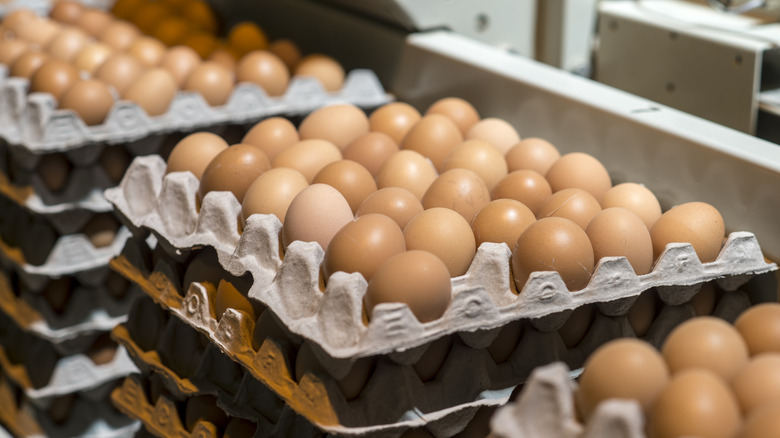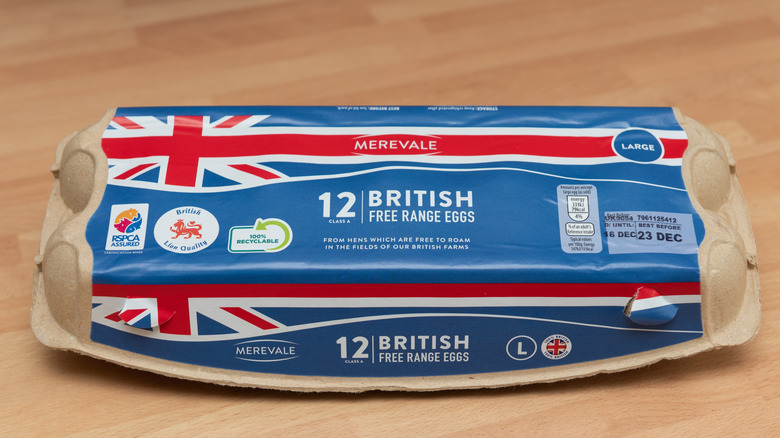American Eggs Are Literally Illegal In The UK, And Here's The Actual Reason
If you've ever travelled between the U.S. and the U.K., you've likely spotted small differences in the grocery stores, like picking up zucchinis in America and courgettes in Britain. But there's one difference that goes beyond mere terminology: eggs. While the eggs may look nearly identical across the pond, American eggs would be illegal if sold in the U.K. (and the reverse is true, too) due to the different laws regarding egg washing and sanitizing.
Since the 1970s, U.S. egg producers have been federally required to wash eggs with hot water, soap, and sanitizing agents before air-drying them. This law was passed in response to health concerns about food-borne illnesses, and countries such as Canada, Japan, and Australia have since adopted similar cleaning processes for their eggs. Washing the eggs, however, removes a natural protective coating, which is why American eggs must be refrigerated to prevent bacteria growth and increase shelf life.
In contrast, the U.K. — as well as the European Union — prohibits egg washing altogether. EU and British regulations argue that washing can do more harm than good, potentially introducing bacteria during unmonitored egg washing. Instead, the focus is on maintaining hygienic conditions at the source and relying on the eggs' natural protective membrane. Because this layer is still intact, British eggs can also be stored at room temperature and sold on shelves rather than in refrigerated sections.
How these differences affect taste and cooking
If you're visiting a country with different egg protocols than you're used to, you might wonder whether it'll affect how you cook your omelet or eggs Florentine breakfast sandwich. While U.K. eggs have a darker yolk and, some would say, a richer flavor, the overall taste of eggs in the U.S. and U.K. are quite similar. Subtle differences, however, may show up in baking and cooking due to the temperatures of the eggs.
One of the biggest distinctions is how cold eggs affect baking. Cold eggs can lead to denser batters, prevent ingredients like butter from emulsifying properly, and even increase cooking times. Room-temperature eggs, on the other hand, blend more easily and often yield fluffier cakes with a finer crumb. This is why many chefs recommend bringing American eggs up to room temperature before cooking — a step most British chefs can skip.
Temperature also matters for stove-top cooking. Using cold eggs is one of many common mistakes when making scrambled eggs, as the eggs cook unevenly and take more time. Even if you're just hard boiling eggs, starting with ones straight from the fridge can cause cracked shells or inconsistent cooking.
The good news, if you live in the U.S., is that you can get eggs up to room temperature in no time with a glass of warm water. Just avoid leaving them out on the counter, as refrigerated American eggs are only safe for a bit if left out at room temperature.


